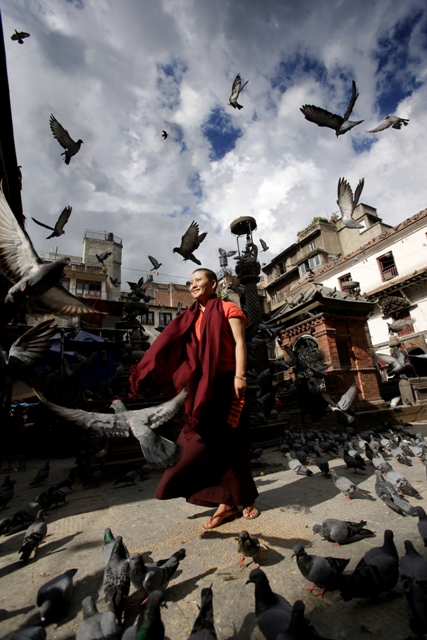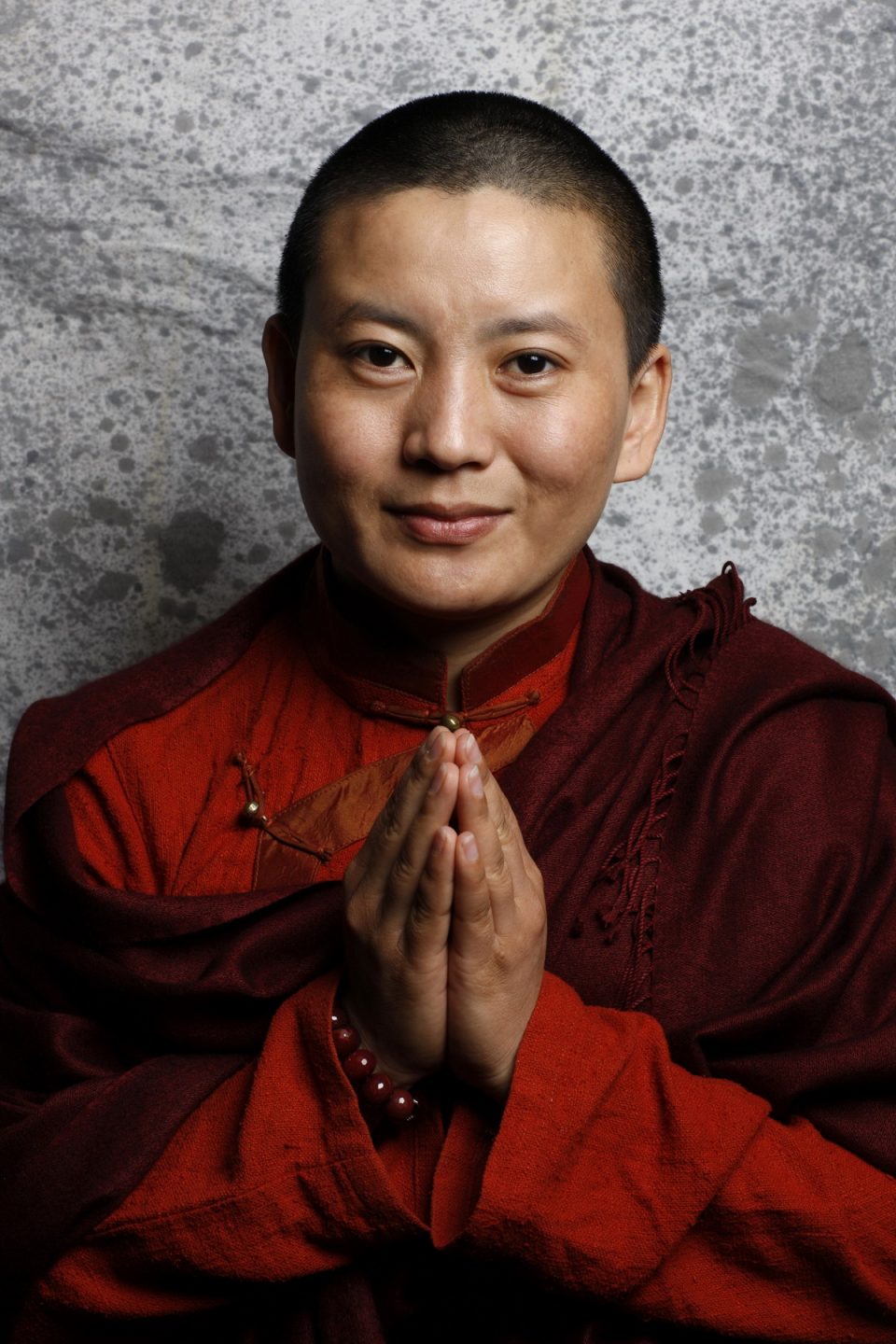Ani Choying Drolma: The Touring Nun
A journey from an abused child to an angry nun to a globe-trotting Buddhist chanter and peace messenger

“People see it as singing, but it’s not singing for entertainment. I’m not singing tragic love songs or something meaningless.” Photo: Courtesy of the artist
A.R. Rahman, who, on a good day, can turn the heart on its axis, tried merging the worlds of fire and ice in 2013. In the third season of the popular television music series MTV Coke Studio, he brought together Nepalese nun Ani Choying Drolma, austere in crimson and mustard, and Jordanian vocalist Farah Siraj, all smiles and silver, in a song called “Zariya.” Drolma’s chants made up the ambience in the track like birdsong in a forest.
Drolma’s voice is for those who value silence. It’s a different texture, more mellow and thoughtful and inward- and upwardlooking. Her albums (she’s released 11 so far) are a mix of Buddhist mantras, invocations and supplications, heavy words filled with a light sound. “The way I sing on stage is the way I’ve been trained to sing in a meditative way,” she says. “Since it’s a melody, people see it as singing, but it’s not singing for entertainment. I’m not singing tragic love songs or something meaningless. It’s a meditation practice for me, and I continue to do it in the same way.” Lessening the listener’s burdens, which is what Drolma’s voice does, is a responsibility no singer should have to bear, but Drolma’s original calling means she doesn’t have a choice.
Drolma, 45, joined the Nagi Gompa monastery in Kathmandu at the age of 13 because her parents gifted her a miserable childhood. Her father was a batterer, and her mother a silent witness. “If my father would get angry over something, he’d pour it out on my mother and me,” she says. “At home, I was never given the feeling that it’s okay to be a child, that it’s okay to run around. Every time I would get distracted with playing outside, my father would drag me home by my hair. Somehow this environment made an impression on me that if I were to get married, it would be the worst decision I’d make. It would mean being dominated, discriminated. The only alternative I had was to become an ani [Tibetan for nun] and enter a nunnery. Once you become a nun, people respect your choice.”

Drolma, 45, joined the Nagi Gompa monastery in Kathmandu at the age of 13 because her parents gifted her a miserable childhood. Photo: Courtesy of the artist.
Great luck usually follows great misfortune and Drolma’s guru at the monastery, Tulku Urgyen Rinpoche, was one of the greatest Vajrayana masters of his time. “Entering the monastery was like entering paradise. Nobody beat me up; nobody made me work. The most special thing was to be with my teacher. Whatever goodness I have in me today is the blessing of him.”
Like morning prayers are taught to school kids, everyone at the monastery was taught to chant. “We would never sing-sing; it was more like bhajan-kirtan. The basic training is the same for every Buddhist monk. But every individual has different vocal abilities. Some people can sing more melodiously and the others don’t have that flexibility.” Drolma’s voice, haunting and soothing, struck a chord in a visiting musician. “The person who thought my voice had any commercial value was a guitarist from America called Steve Tibbetts. That’s why he proposed we do an album together.” That album was Cho, which released in 1997, a year after her guru’s death. From 1998 onwards, Drolma starting touring the world, with the U.S. and Europe as her main prayer halls.
Her peers were uneasy about her new life on the road. “Some people appreciated, some people were annoyed. They were very critical of me because the conventional idea of a Buddhist nun is not someone who sings outside. But I was open-minded, and I was clear in my heart that I wasn’t breaking any rules.” Today, Drolma is travelling every month””she performed at the National Center for the Performing Arts, Mumbai on October 7th, and traveled to Hong Kong in the same week.
Despite her high-flying career, Drolma’s feet are firmly on the ground. “Because people enjoy my singing, I’m able to generate resources [read money] through which I can do meaningful things in Nepal,” she says. “I run two free schools for higher education for girls, and I run a hospital specifically helping people who are suffering from kidney failure. I work very closely with UNICEF as I’m their national goodwill ambassador… I would say I’m following the path of Buddha. My singing ability is a magic wand. It has the potential to not only fulfill my own wishes but others’ wishes as well. The more it’s used for the benefit for all, the more powerful it becomes.
Listen to A.R. Rahman’s “Zariya” featuring Ani Choying Drolma, Farah Siraj and more below:







